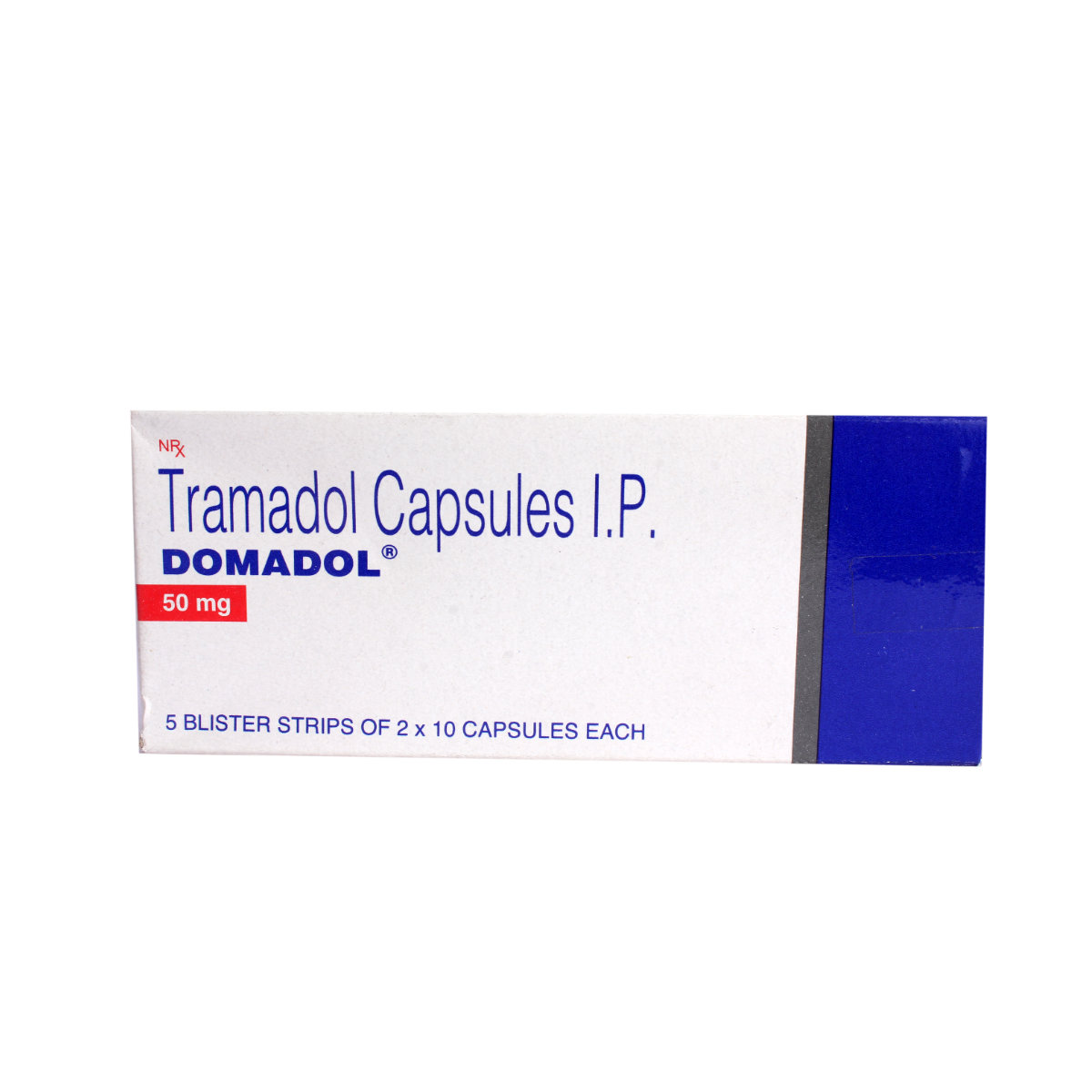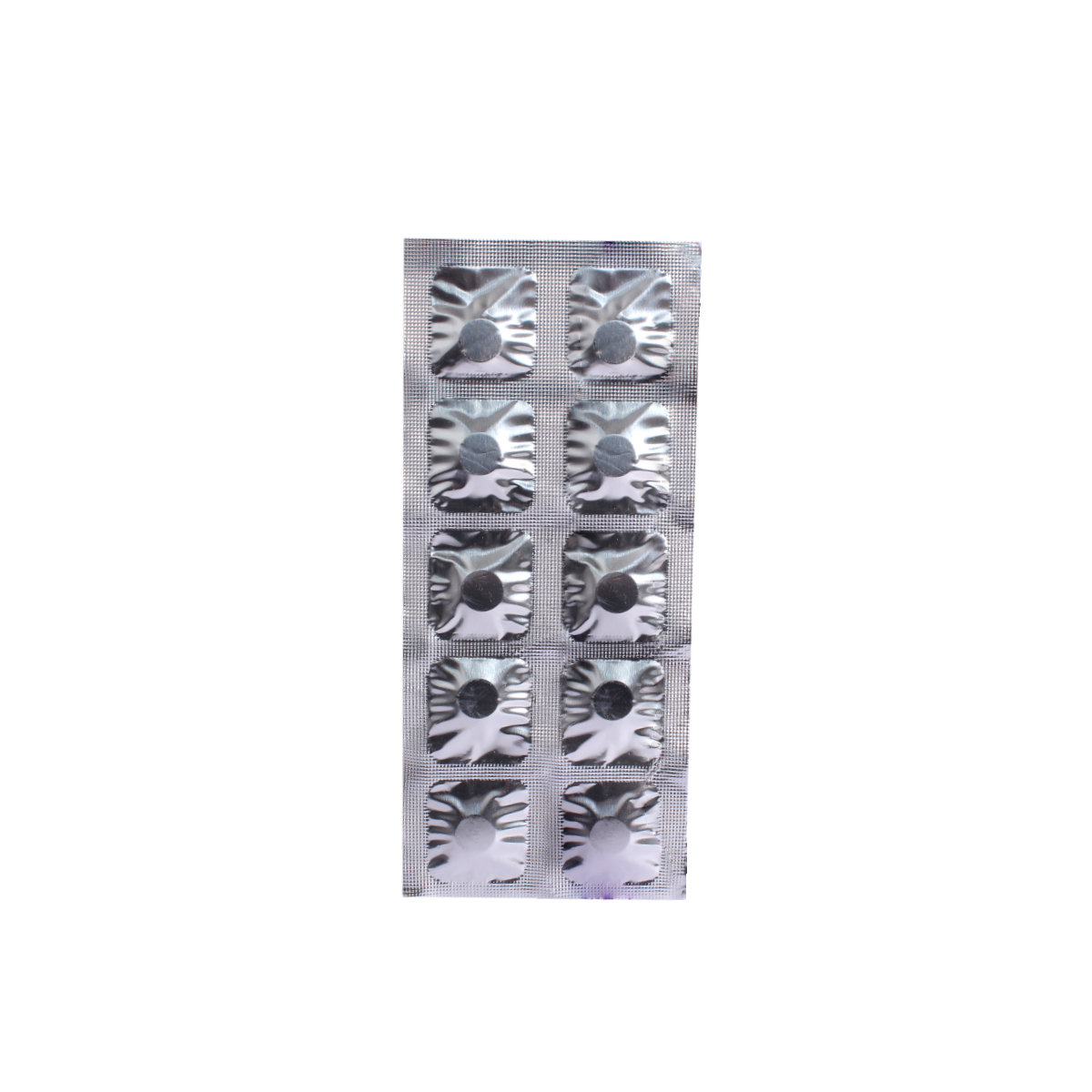TRAMAFLAM TABLET
MRP ₹70
(Inclusive of all Taxes)
₹10.5 Cashback (15%)
Provide Delivery Location
Online payment accepted
 Prescription drug
Prescription drugWhats That
Composition :
Manufacturer/Marketer :
Consume Type :
Expires on or after :
Return Policy :
About TRAMAFLAM TABLET
TRAMAFLAM TABLET belongs to a class of drugs called opioid analgesics (pain killers). TRAMAFLAM TABLET is primarily used to prevent and treat moderate to severe pain. Pain is an unpleasant sensation caused by an injury or illness. Pain may be acute (short term) or chronic (long term). It can be general (overall body pains) or localized (pain in a specific area of the body).
TRAMAFLAM TABLET contains Tramadol which works by mimicking the action of endorphins (pain-reducing chemicals) in the brain and spinal cord. Thereby inhibits the transmission of pain signals from nerves to the brain. Also, TRAMAFLAM TABLET improves the effect of serotonin and noradrenaline (chemical messengers in the brain and spinal cord) and helps in relieving pain.
Take TRAMAFLAM TABLET as prescribed. Your doctor will advise you how often you take TRAMAFLAM TABLET based on your medical condition. In some cases, you may experience nausea, dizziness, headache, vomiting, dry mouth, drowsiness, constipation, sweating or tiredness. Most of these side effects of TRAMAFLAM TABLET do not require medical attention and gradually resolve over time. However, if the side effects worsen or persist, please consult your doctor.
If you are known to be allergic to TRAMAFLAM TABLET or any other medicines, please tell your doctor. TRAMAFLAM TABLET is not recommended for children below 12 years of age. If you are pregnant or breastfeeding or have a history of fits, please inform your doctor before taking TRAMAFLAM TABLET. Do not consume alcohol with TRAMAFLAM TABLET as it may increase the risk of side effects. Avoid frequent or high doses as it may lead to addiction.
Uses of TRAMAFLAM TABLET
Directions for Use
Key Benefits
TRAMAFLAM TABLET is a pain killer that works by mimicking the action of endorphins (pain-reducing chemicals) in the brain, thereby, inhibiting the transmission of pain signals from nerves to the brain. Thus, TRAMAFLAM TABLET improves the effect of serotonin and noradrenaline (chemical messengers in the brain and spinal cord) and helps in relieving pain. TRAMAFLAM TABLET is used to relieve pain after surgery, pain caused by an injury or illness.
Storage
Drug Warnings
Do not stop taking TRAMAFLAM TABLET suddenly as it may cause withdrawal symptoms. Avoid frequent or high doses as it may lead to addiction. If you are known to be allergic to TRAMAFLAM TABLET or any other medicines, please tell your doctor. TRAMAFLAM TABLET is not recommended for children below 12 years of age and for children suffering from breathing problems as it may worsen the symptoms of TRAMAFLAM TABLET toxicity. If you are pregnant or breastfeeding or have a history of epilepsy (fits), please inform your doctor before taking TRAMAFLAM TABLET. Do not consume alcohol with TRAMAFLAM TABLET as it may increase the risk of side effects. TRAMAFLAM TABLET should be taken with caution by the patients taking sleeping pills, tranquillizers, hypnotics or other opiate containing pain killers.
Diet & Lifestyle Advise
- Do regular exercise such as swimming or walking.
- Drink plenty of water while taking TRAMAFLAM TABLET to avoid dry mouth.
- Maintain a fibre rich diet and eat plenty of fresh fruits and vegetables to avoid constipation while taking TRAMAFLAM TABLET.
- Avoid consumption of alcohol and quit smoking.
Side Effects of TRAMAFLAM TABLET
- Nausea
- Dizziness
- Headache
- Vomiting
- Dry mouth
- Drowsiness
- Constipation
- Sweating
- Tiredness
Habit Forming
Therapeutic Class
All Substitutes & Brand Comparisons
RX
Not for online saleDOMADOL TABLET
Unichem International
₹51
(₹4.59 per unit)
27% CHEAPERRX
Not for online saleTramatas Tablet 10's
Intas Pharmaceuticals Ltd
₹51
(₹4.59 per unit)
27% CHEAPERRX
Out of StockNot for online saleKridol-MD 50 mg DT Tablet 10's
Kriven Health Solutions Pvt Ltd
₹84
(₹8.4 per unit)
33% COSTLIER
Author Details
We provide you with authentic, trustworthy and relevant information
FAQs
Drug-Drug Interactions Checker List
- BUPRENORPHINE
- WARFARIN
- ALPRAZOLAM
- CARBAMAZEPINE
- ONDANSETRON
- KETOCONAZOLE
- CIPROFLOXACIN
- ERYTHROMYCIN
- FLUOXETINE
- DOXEPIN
- SAQUINAVIR
Special Advise
- Patients with severe liver or kidney insufficiency should avoid taking TRAMAFLAM TABLET.
- If your children have any breathing problem, please inform your doctor as it may worsen the toxicity symptoms.
- Do not give TRAMAFLAM TABLET to others. Use TRAMAFLAM TABLET only when prescribed by a doctor and avoid frequent or doses as it may cause addiction.
- TRAMAFLAM TABLET may impair mental or physical abilities required for the performance of hazardous activities like driving a motor vehicle or operating heavy machinery.
Disease/Condition Glossary
Pain: It is an unpleasant sensation caused by an injury or illness. Pain may be acute (short term) or chronic (long term). It can be general (overall body pains) or localized (pain in a specific area of the body). Pain is highly subjective as some people have a high tolerance for pain while others have a low tolerance. Although pain is inconvenient and unpleasant, it hints about causes when something is wrong in the body. Pain may be caused due to cramps, headache, bone fractures, stomach pain, arthritis (swelling of one or more joints), muscle strain or overuse, cuts, flu, irritable bowel syndrome (an intestinal disorder causing stomach pain, diarrhoea or constipation) and fibromyalgia (muscle pain with stiffness and tenderness).

Have a query?
Alcohol
Safe if prescribed
Avoid consumption of alcohol with TRAMAFLAM TABLET as it may cause drowsiness or increase the risk of side effects.
Pregnancy
Consult your doctor
TRAMAFLAM TABLET is a Category C pregnancy drug and is considered unsafe for pregnant women as it may cause withdrawal symptoms in baby after birth.
Breast Feeding
Consult your doctor
Avoid breastfeeding while taking TRAMAFLAM TABLET as it may be excreted in breast milk and cause adverse effects in the baby.
Driving
Safe if prescribed
TRAMAFLAM TABLET may cause dizziness, blurred vision or drowsiness in some people. It is an offence to drive if TRAMAFLAM TABLET affects you. Therefore, avoid driving if you feel drowsy, dizzy or experience any vision problems after taking TRAMAFLAM TABLET.
Liver
Consult your doctor
Take TRAMAFLAM TABLET with caution, especially if you have a history of Liver diseases/conditions. The dose may be adjusted by your doctor as required. However, the recommended dose of TRAMAFLAM TABLET for adult patients with liver cirrhosis is 50 mg every 12 hours.
Kidney
Consult your doctor
Take TRAMAFLAM TABLET with caution, especially if you have a history of Kidney diseases/conditions. In patients with creatinine clearances of less than 30 mL/min, dosing reduction might be recommended.
Children
Safe if prescribed
TRAMAFLAM TABLET is not recommended for children below 12 years of age.











